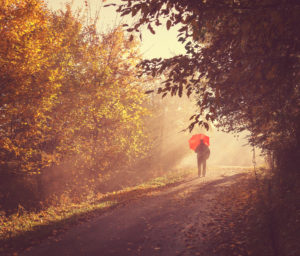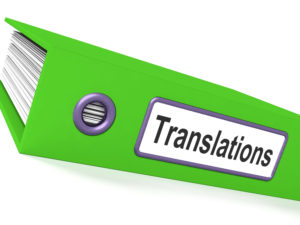Quick links, bringing you great articles on writing from all over the web.
So not to share TMI but Mr. Paula and I have a lovely marriage so when I have encountered some hot scenes in books lately and found myself skipping over them, well I thought it was just me. Turns out posting at Kristen Lamb‘s site nailed it. The scenes I passed by weren’t bad necessarily but felt out of place in the story. Check out Cait’s post on how to do sex scenes right!
~ * ~
How to Write Superior Sex Scenes: Ignite Your Readers & Burn Them to Ash
 Hey Guys, Cait Reynolds, my co-author/partner in crime/therapist/evil half is here to talk about the birds and the bees and maybe bees tying up other bees. The “How To” of writing superior sex scenes is vital, just uncomfortable for me. Sorry. I blame my upbringing.
Hey Guys, Cait Reynolds, my co-author/partner in crime/therapist/evil half is here to talk about the birds and the bees and maybe bees tying up other bees. The “How To” of writing superior sex scenes is vital, just uncomfortable for me. Sorry. I blame my upbringing.
I’m a Texan with a Lutheran mom and Baptist father. I grew up in the buckle of the Bible Belt, and have had far too much vacation bible camp to be much help. In fact, legally, I cannot write a sex scene until every member of my family dies…and likely not even then.
If you need help with plotting a fight scene or murder? I’m your gal.
All this said, roughly 80% of publishing is powered by the romance genre. This is a FACT.
I read a LOT of romance, myself. Sadly, however, there are “romances” so over-processed and crammed with filler they need a foil tray instead of a book cover.
TV Dinner sex scenes.
Tired, overdone, dry, uncreative and no one looks forward to consuming this stuff (unless starving and desperate).
Read the full post on Kristen Lamb!

 I am so far behind on my words! This is usually the time I start getting bogged down in my story and am trying to add details and depth. But I haven’t even had a chance to do that yet. My apologies to anyone who noticed I forgot to post yesterday.
I am so far behind on my words! This is usually the time I start getting bogged down in my story and am trying to add details and depth. But I haven’t even had a chance to do that yet. My apologies to anyone who noticed I forgot to post yesterday. Let’s talk about the opening line of your book. The first thing to know about “first lines” is that they are not going to make or break you. Sure, it’s a lot of fun coming up with great ones. But as long as the first line makes someone want to read the second line, and that line makes you want to read the third… you’re on the right track.
Let’s talk about the opening line of your book. The first thing to know about “first lines” is that they are not going to make or break you. Sure, it’s a lot of fun coming up with great ones. But as long as the first line makes someone want to read the second line, and that line makes you want to read the third… you’re on the right track.
 Ready to take your writing seriously? Getting ready for NaNoWriMo and need some writing and productivity tips?
Ready to take your writing seriously? Getting ready for NaNoWriMo and need some writing and productivity tips?  I’ll be the first to admit that there’s a serious problem with romantic relationships in literature nowadays.
I’ll be the first to admit that there’s a serious problem with romantic relationships in literature nowadays. I love it when a story idea grips me. Often, it starts with one small thing…a sound, or an image flash in my brain. Sometimes I’ll get both. The experience is so utterly sensory the real world is momentarily forgotten. Maybe I’ll see and hear the ominous flutter of a plastic grocery bag caught in a tree branch on a windy day. Immediately I’ll start to “know” things: there’s water nearby. A dead body lays in the reeds, a teenage girl. A boy will find her, one who has lost the ability to speak. Snippets trickle in, clues of the story ahead. Excitement builds. I’m sure it’s a similar process for many of you.
I love it when a story idea grips me. Often, it starts with one small thing…a sound, or an image flash in my brain. Sometimes I’ll get both. The experience is so utterly sensory the real world is momentarily forgotten. Maybe I’ll see and hear the ominous flutter of a plastic grocery bag caught in a tree branch on a windy day. Immediately I’ll start to “know” things: there’s water nearby. A dead body lays in the reeds, a teenage girl. A boy will find her, one who has lost the ability to speak. Snippets trickle in, clues of the story ahead. Excitement builds. I’m sure it’s a similar process for many of you. I have done fantasy stories in the past, that involved some world building but since the world was sort of ye old English based, world building wasn’t that difficult. This year I am doing a science fiction story that takes place in earths future. It is not dystopian! Yet. Actually, we were about to make a huge mess with huge pollution issues and bad weather juju due to global warming when the aliens come and save us. But they don’t look at us like equals, and not even really like pets. They aren’t sure what to do with us on the very back water of the galaxy and we are so primitive to them. They do save us from ourselves and life is good. For now.
I have done fantasy stories in the past, that involved some world building but since the world was sort of ye old English based, world building wasn’t that difficult. This year I am doing a science fiction story that takes place in earths future. It is not dystopian! Yet. Actually, we were about to make a huge mess with huge pollution issues and bad weather juju due to global warming when the aliens come and save us. But they don’t look at us like equals, and not even really like pets. They aren’t sure what to do with us on the very back water of the galaxy and we are so primitive to them. They do save us from ourselves and life is good. For now.

 Hello, friends! Time for another #StorySocial recap. Never heard of it?
Hello, friends! Time for another #StorySocial recap. Never heard of it? 5 Writing Tips: Harlan Coben
5 Writing Tips: Harlan Coben Psychologists differentiate between outcome goals (write a book) and process goals (the steps it will take to write a book). The outcome goal focuses on the big picture and the end result—a diamond-studded World Series ring, an Emmy, the winner’s circle at the Kentucky Derby.
Psychologists differentiate between outcome goals (write a book) and process goals (the steps it will take to write a book). The outcome goal focuses on the big picture and the end result—a diamond-studded World Series ring, an Emmy, the winner’s circle at the Kentucky Derby.
 The relationship of writer to book-in-progress reminds me of a marriage. As opposed to a date.
The relationship of writer to book-in-progress reminds me of a marriage. As opposed to a date.  Scene breaks and transitions allow us to experience things happening in different places and times, and to different characters. Writing good scene breaks and transitions will keep your story moving, even as you switch between settings (places and times) and viewpoints. Read tips and illustrative examples:
Scene breaks and transitions allow us to experience things happening in different places and times, and to different characters. Writing good scene breaks and transitions will keep your story moving, even as you switch between settings (places and times) and viewpoints. Read tips and illustrative examples: